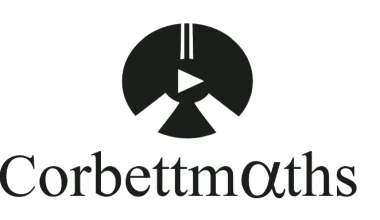The Classical School of Criminology is a theoretical perspective that emerged during the Enlightenment period in the 18th century. It responded to the prevailing view that crime resulted from supernatural forces, such as demonic possession or divine punishment.
Instead, classical criminologists believed that crime was a rational choice made by individuals who weighed the potential benefits against the risks of punishment.
This article will comprehensively introduce the Classical School of Criminology, including its fundamental principles, prominent theorists, and criticisms. We will also answer frequently asked questions about today’s classical perspective and its relevance.

Table of contents
- What Is the Classical School of Criminology?
- What are the fundamental principles of the Classical School of Criminology?
- Who were some of the most prominent classical criminologists?
- How does the Classical School of Criminology differ from other criminological perspectives?
- What are some criticisms of the Classical School of Criminology?
- Frequently Asked Questions
- Conclusion
- References
- Recommendations
What Is the Classical School of Criminology?
The Classical School of Criminology is a theoretical perspective on crime and punishment that emerged during the Enlightenment period in the 18th century.
Its fundamental principles include the idea that individuals are rational beings who make choices based on the potential rewards and risks of their actions and that crime is a logical choice made by individuals who weigh the benefits against the dangers of punishment. The Classical School emphasizes the importance of proportionate punishment and the need for a justice system that is fair and predictable.
Some of the most prominent classical criminologists include Cesare Beccaria, Jeremy Bentham, and John Howard. While the Classical School of Criminology has been criticized for failing to account for social and economic factors that may contribute to crime, it remains an essential perspective in criminology.
You should see this related article: What does an Electric Filter do? (Full explanation with FAQs)
What are the fundamental principles of the Classical School of Criminology?
The fundamental principles of the Classical School of Criminology include the following:
Free Will
The Classical School believed that individuals are rational beings with free will and make choices based on their self-interest and their actions’ potential rewards and risks.
Rational Choice
The Classical School posits that individuals engage in crime after weighing the benefits of their actions against the potential risks of punishment.
Check out this article: What Are the Different Types of Executive-Level Jobs in 2023? How to Apply.
Punishment
Punishment should be proportionate to the severity of the crime committed and should be predictable and consistent.
Deterrence
The threat of punishment can deter individuals from engaging in criminal behavior.
Due Process
The justice system should operate according to due process, ensuring that individuals get fair treatment and their rights are protected.
Overall, the Classical School emphasized the importance of rationality, proportionality, and predictability in the criminal justice system.
Read this article: What Does a Chief Cook Do? Full Explanations with FAQs.
Who were some of the most prominent classical criminologists?
Some of the most prominent classical criminologists include Cesare Beccaria, Jeremy Bentham, and John Howard.
Cesare Beccaria was an Italian philosopher and jurist considered the father of modern criminology. His work “On Crimes and Punishments” is a foundational text of the Classical School, and it influenced the development of modern criminal justice systems worldwide.
Jeremy Bentham was an English philosopher and legal theorist who developed the concept of utilitarianism, which posits that the best action is the one that maximizes overall happiness. Bentham’s theories influenced the development of the Classical School, and he was a proponent of prison reform.
John Howard was an English philanthropist and reformer who advocated for improvements in prison conditions and the treatment of prisoners. His work, “The State of the Prisons in England and Wales,” significantly impacted the development of modern prison systems.
Other influential classical criminologists include Jean-Jacques Rousseau, Montesquieu, and Voltaire.
Have you seen this article: What Is ESOL In Education? (Full Explanation With Faqs)
How does the Classical School of Criminology differ from other criminological perspectives?
The Classical School of Criminology differs from other criminological perspectives in several ways:
The Positivist School
The Positivist School of criminology emerged in the 19th century and emphasized the importance of scientific methods in the study of crime.
While the Classical School focused on individual responsibility and the idea that crime is a rational choice, the Positivist School suggested that biological, psychological, and social factors may contribute to criminal behavior.
Check out this article: What is Intervention in Education (Full Explanation with FAQs)
The Biological School
The Biological School of criminology emphasizes the importance of biological factors, such as genetics and brain function, in developing criminal behavior. In contrast, the Classical School focused on individual responsibility and the idea that crime is a rational choice.
The Chicago School
The Chicago School of criminology emerged in the early 20th century and emphasized the importance of social and environmental factors in developing criminal behavior. While the Classical School focused on individual responsibility, the Chicago School suggested that crime is a product of social and economic conditions.
The Classical School of Criminology differs from other perspectives in its focus on individual responsibility and the idea that crime is a rational choice made by individuals who weigh the benefits against the risks of punishment.
Read this article: What Is Seminary School? Why I will prefer Seminary School.
What are some criticisms of the Classical School of Criminology?
There are several criticisms of the Classical School of Criminology, including:
Overemphasis on individual responsibility
Critics argue that the Classical School places too much emphasis on individual responsibility and does not adequately consider social and economic factors that may contribute to criminal behavior.
Failure to account for individual differences
The Classical School assumes that all individuals are rational and make decisions based on the same criteria. However, this may only be true for some individuals, as some may have different decision-making processes or cognitive abilities.
You should see this article: What is the Hardest Year of High School? How to Scale Through.
Lack of attention to the root causes of crime
The Classical School focuses on the individual choice to commit a crime but does not examine the underlying social, economic, and cultural factors that may contribute to criminal behavior.
Ignoring the impact of punishment on offenders
The Classical School assumes that punishment effectively deters criminal behavior but does not consider the potential adverse effects of punishment on offenders, such as the potential for rehabilitation.
The limited scope of the application
The Classical School’s focus on individual responsibility and rational choice may not apply to all types of crime, such as crimes committed in the context of mental illness or addiction.
Despite these criticisms, the Classical School remains an essential perspective in criminology and has influenced the development of modern criminal justice systems.
Read this article: What is a Quaker School? (Full Explanation with FAQs)
Frequently Asked Questions
The fundamental principles of the Classical School of Criminology include the idea that individuals have free will and are rational beings who make choices based on the potential rewards and risks of their actions. Classical theorists also emphasized the importance of proportionate punishment and the need for a justice system that is fair and predictable.
Some of the most prominent classical criminologists include Cesare Beccaria, Jeremy Bentham, and John Howard. Beccaria’s work “On Crimes and Punishments” is considered a foundational text of the Classical School.
The Classical School of Criminology differs from other criminological perspectives, such as the Positivist School, focusing on individual responsibility and the idea that crime is a rational choice. Different perspectives, such as the Biological School, emphasize biological and psychological factors that may contribute to criminal behavior.
Critics of the Classical School of Criminology argue that it fails to account for social and economic factors that may contribute to criminal behavior. They also suggest that focusing on punishment as a deterrent may be ineffective in preventing crime.
Yes, the Classical School of Criminology remains relevant today. Its principles of proportionate punishment and the importance of a fair and predictable justice system continue to influence contemporary criminological thinking. However, it is essential to consider other perspectives and factors that may also contribute to crime.
Conclusion
The Classical School of Criminology was a significant development in the history of criminology, as it provided a rational and scientific framework for understanding crime and punishment. Its fundamental principles, such as free will and the social contract between individuals and society, influence contemporary criminological thinking.
Some of the most prominent classical criminologists include Cesare Beccaria, Jeremy Bentham, and John Howard. These theorists emphasized the importance of proportionate punishment and the need for a justice system that is fair and predictable.
While the Classical School of Criminology has been criticized for its focus on individual responsibility and failure to account for social and economic factors contributing to crime, it remains a critical perspective in criminology.
Have you seen this article: What Is ESOL In Education? (Full Explanation With Faqs)
References
- https://www.lawteacher.net/free-law-essays/criminology/the-classical-school-of-criminological.php
- https://en.wikipedia.org/wiki/Classical_school_(criminology)
- https://study.com/academy/lesson/the-classical-school-of-criminology-its-influence-today.html
- https://www.practicaladultinsights.com/what-is-the-classical-school-of-criminology.htm


